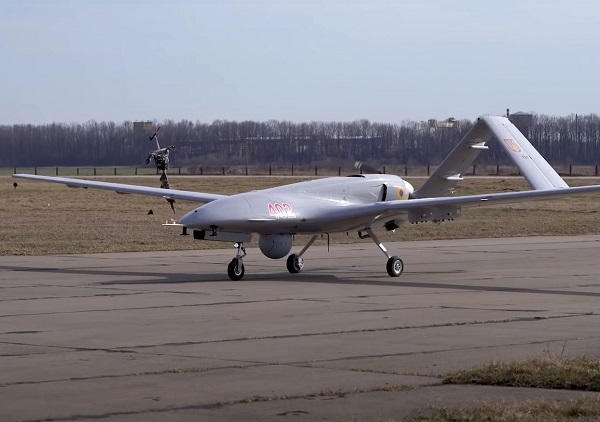Turkey’s Military Involvement in Sudan: Between Drone Failure and an Islamist Agenda in Port Sudan

As the conflict intensifies between the Sudanese army and the Rapid Support Forces (RSF), Turkey emerges as a regional actor striving to assert its influence through military and ideological channels. It does so by deploying modern warfare tools and covert tactics for indirect intervention. Ankara has openly aligned with the Sudanese army, supplying advanced military technologies, especially drones—now a hallmark of its external defense strategy. However, recent developments in Sudan expose the deep failure of this military bet.
-
Turkey’s Interventions in Sudan: Political and Economic Ambitions Amid Political Transitions
-
Sudanese rapprochement with Iran and Turkey: Economic gains or geopolitical threats?
Turkish Drone Setback in the Sudanese Battlefield
In a notable shift, Turkey deployed Yiha suicide drones to the Sudanese frontlines, following the unsuccessful attempts of its strategic Bayraktar Akıncı drones to penetrate RSF-controlled airspace. Although Yiha drones were specifically designed to target air defense systems and radar installations, they failed to make any operational impact and were shot down immediately upon entering contested airspace.
This operational failure was more than a tactical mishap—it dealt a serious blow to the image of Turkey’s defense industry abroad. The drones were developed through a strategic partnership between Baykar, Turkey’s leading drone manufacturer, and the NASTP defense research center. The defeat raised doubts about the practical effectiveness of Turkish military technology, leading to reduced confidence among international clients and a slowdown in Turkey’s arms export deals.
-
Fueling the War in Sudan: Iran Qatar and Turkey in the Eye of the Storm
-
Turkey Supplies Drones and Weapons to Sudanese Army, Used to Kill Civilians and Displace Them
The Political and Ideological Dimensions of Turkish Intervention
Turkey’s motives in Sudan extend well beyond military support. Ankara seeks to revive its influence in East Africa and the Horn of Africa through alliances with Islamist currents embedded within the Sudanese military. This influence is becoming increasingly visible in Port Sudan, now the de facto administrative capital of the military government, where key war and state decisions are made.
Through this alliance, Turkey appears to be attempting to replicate its Islamist governance model in Sudan, by backing loyalist political and security factions. This approach risks reigniting ideological extremism and deepening political and sectarian divides within the country.
-
The gold alliance between Sudan and Turkey: Political and Economic Exchange
-
Ghazi Salah Al-Din – Qatar’s and Turkey’s arm to return the Brotherhood to Sudanese power
Militarization of Aid and Its Use as a Cover
In addition to overt support, Turkey has been accused of using humanitarian aid as a front to smuggle weapons and military equipment to the Sudanese army. Local reports point to “aid shipments” arriving in Port Sudan that allegedly included combat gear, delivered without oversight under the guise of humanitarian relief. If confirmed, this would represent a serious breach of international norms and underline that Turkey’s intervention is neither neutral nor benign, but rather strategically aimed at shifting the balance of power in its favor.
The End of the Turkish Drone Myth?
Sudan is not the first testing ground for Turkish drones, but it may well be the most embarrassing. While Turkey has heavily promoted the success of Bayraktars in Azerbaijan and Libya, Sudan has proven to be a different battlefield—one where drones faced guerrilla warfare tactics and effective countermeasures, resulting in operational and reputational failure.
-
When Weapons Are Tested Outside Laboratories: Turkish Drones in Sudan and the Unveiling of an Overlooked Truth
-
Crash of Drones, Crash of Reputation: Turkish UAVs in Sudanese Skies
This setback could signal the decline of Turkey’s momentum in arms exports, especially as it faces increased competition from international players with more sophisticated technologies and experience in managing complex war environments like Sudan’s.
What is unfolding in Sudan today cannot be separated from the wider regional power struggle or Turkey’s ambitions to redraw its footprint in Africa using military and ideological tools. Yet, the failure of its drones and the controversial backing of Islamist factions raise legitimate questions about the ethics of such involvement and its implications for Sudan’s stability. When humanitarian aid becomes a front for violence, and technology is weaponized for ideological goals, the inevitable outcome is a protracted war—at the expense of the Sudanese people and their future.












